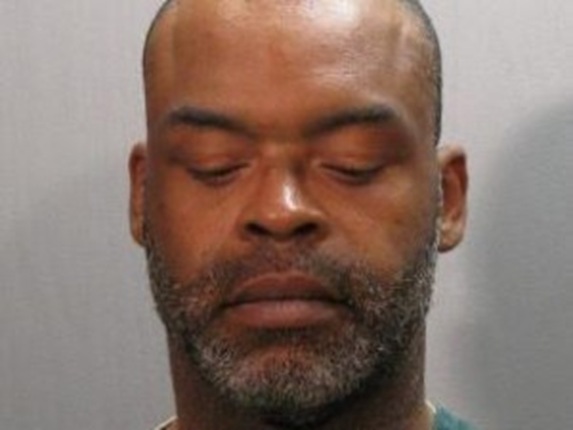Times Dispatch
January 21, 2014

Murder defendant Brian S. Mallory asked on the opening day Monday of his Hanover County jury trial for a new lawyer, a new judge, a new mental evaluation, and, finally, a new jury. He was denied all four requests.
Mallory, 44, is facing a possible life sentence in the brutal stabbing death of a beloved Beaverdam-area woman who’d taken him into her home in late 2011 where she was raising two teenaged children.
The two developed an intimate relationship that ended in a bloodbath and death.
On Jan. 30, 2012, a neighbor found Sarajane Hakopian, 44, lifeless and bleeding in the Beaverdam Road home where she lived with Mallory and her two children. Hakopian had failed to turn up for her job caring for a disabled adult woman.
“She was dead,” the neighbor testified Monday, describing how Hakopian’s son had returned home from school that day unaware that his mother was in her upstairs bedroom, dead from multiple stab wounds.
The rocky start to the proceedings Monday followed months of pretrial delays brought on by Mallory’s successful effort last year to gain a new lawyer in the case.
Monday he asked that the new lawyer, David DuBose, also be replaced. DuBose repeatedly countered Mallory’s contention that he and DuBose had not discussed critical points of his case prior to trial after Mallory pleaded not guilty at the outset of the proceeding Monday,
Hanover Circuit Judge J. Overton Harris rejected the new-lawyer plea, as well as three other requests.

Of about 40 potential jurors called for possible selection, none was African-American. The 14-person panel selected to hear the case, 11 women and three men, includes two alternate jurors.
DuBose had challenged the prosecution’s final strike of a potential juror, mistakenly arguing that the juror was the lone black person on the panel, an important factor in a case in which the defendant is black and the victim is white.
Harris rejected the argument, concluding that Chief Deputy Commonwealth’s Attorney Shari Skipper had stricken the juror for reasons unrelated to race.
But the stricken juror said outside the courthouse that she is Greek and Skipper stressed in court that the woman’s jury profile information accurately described her as white.
Mallory was arrested in Jacksonville, Fla., after Hakopian’s daughter texted him late at night Jan. 30, asking if he was coming home that night. The cellphone exchange allowed police to track Mallory to Jacksonville, where police located Hakopian’s van near a downtown bus station.
Mallory, who has a long criminal record, had just purchased a bus ticket to Miami.
Skipper told the jury that evidence in the case would show that the murder stemmed from jealously.
“If he couldn’t have her,” she said, “then no one could.”
DuBose said the jury’s racial makeup may be grounds for an appeal at a later date.
